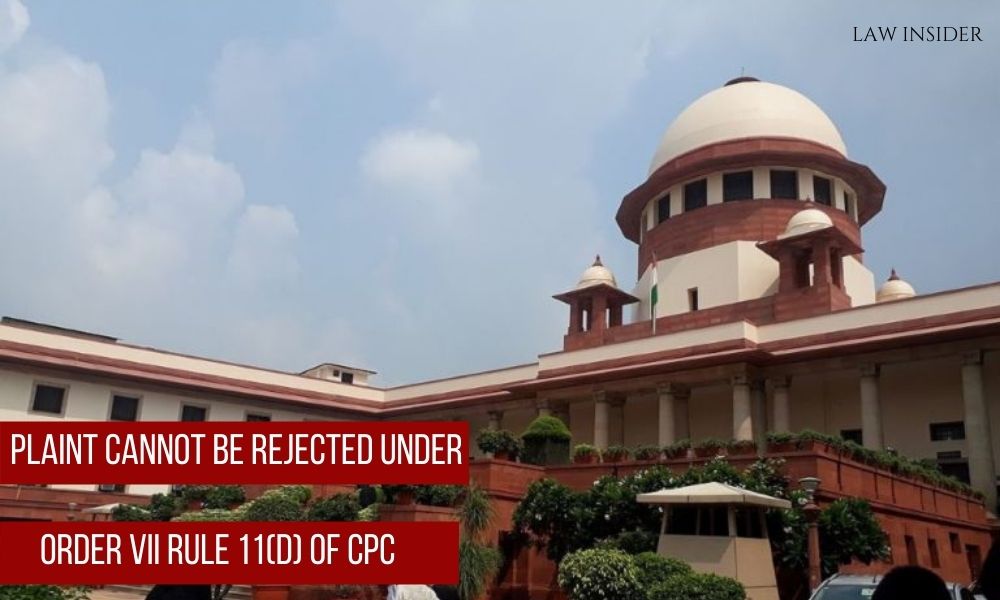Swarna Shukla –
Published On: September 19, 2021 at 12:00 IST
The Supreme Court held that a Plaint cannot be rejected under Order VII Rule 11(d) of the Code of Civil Procedure if the issue of limitation is a mixed question of law and fact.
Justices Hemant Gupta and V. Ramasubramaniam observed this while reversing the Bombay High Court judgement that upheld a Civil Court’s Order to reject a Plaint.
The Suit was filed mainly to set aside an Order passed by the Agricultural Land Tribunal for issuance of certificate in respect of a tenancy under the Maharashtra Tenancy and Agricultural Lands Act, 1948.
The defendants argued that the that the suit filed in 1987 challenging the order passed in 1963 was time-barred. They also contended that civil suit was barred against the order of ALT under the Act.
The Trial Court accepted these arguments and the Plaint was rejected. This was upheld by the Bombay High Court.
The plaintiffs approached the Supreme court and inoted that plaintiffs had raised a dispute that the suit was filed within the period of limitation from the date they got knowledge about the order of ALT.
It also noted that the raised claim, whether true or not should not have been rejected in the first place itself.
The Apex Court further noted that the bar on civil suit was not absolute. It further quoted, “We are of the considered view that the Trial Court as well as the High Court were clearly in error in rejecting the plaint under Order VII Rule 11(d). Hence, the appeal is allowed, the judgment and decree of the Trial Court as well as the High Court are set aside and the suit is restored to file.”
Click here to read/download the Order

